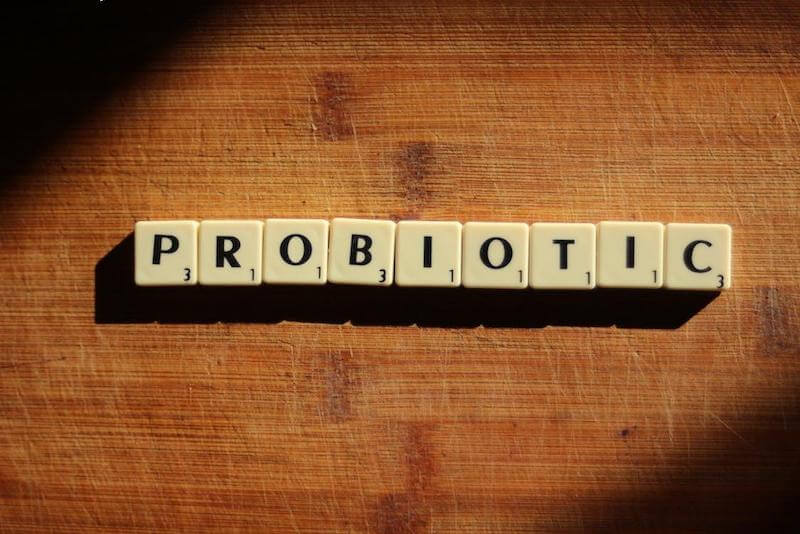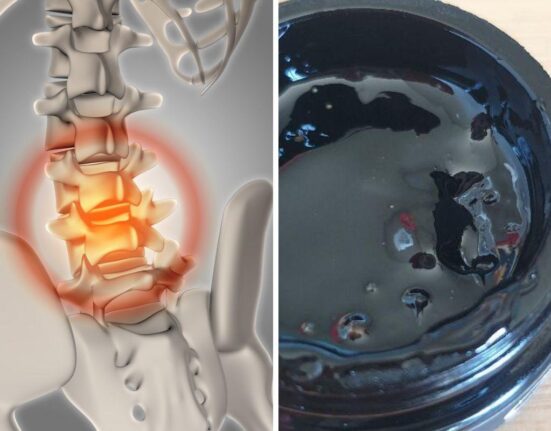Any pet owner knows that a healthy animal is a happy animal. Dogs are no exception, and one important part of keeping your dog healthy is ensuring that their digestive system is functioning properly. This realization hit me hard when I looked after my elderly neighbor’s dog, Barkley, for two weeks while she was away on vacation.

Barkley was always a playful and energetic dog, but during my time with him, I noticed that he had been experiencing frequent bouts of diarrhea and had put on some weight. Knowing how much Barkley means to my neighbor, I decided to take action and help her solve this issue.

I did some research and discovered that Barkley may be in need of some probiotics. So, I talked to my neighbor about the benefits of giving Barkley probiotics and suggested some supplements that could help.
At first, she was hesitant, but I explained to her that probiotics are safe and natural and can help improve Barkley’s digestion and overall health.
After my neighbor started giving Barkley the probiotics, we saw an immediate improvement in his condition. The diarrhea stopped, and he even began to lose some of the excess weight he had gained. My neighbor was so grateful for my help that she asked me to come over and help her administer the probiotic supplements every day.

Not only did I help my neighbor solve Barkley’s health issues, but I also forged a deeper connection with her and strengthened our bond as neighbors.
Now, Barkley is back to his playful and energetic self, and my neighbor couldn’t be happier. Seeing the positive impact that probiotics had on Barkley’s health has motivated me to spread the word to other dog owners and help them keep their furry friends healthy and happy.
The dog probiotic natural health route
Even the healthiest of dogs can sometimes suffer from occasional gastrointestinal issues like gas or diarrhea.
While these problems are usually not serious, they can be unpleasant for both you and your dog. Fortunately, there are steps you can take to help ease your dog’s digestive discomfort.

One such measure is giving them probiotics designed specifically for dogs. These probiotics work by restoring the natural balance of good bacteria in the gut, helping to reduce gas, diarrhea, and other stomach problems.
What are dog probiotics?
Even if you’re the most health-conscious dog owner out there, you may not have heard of probiotics for dogs. Probiotics are live microorganisms (often bacteria) that are similar to the ones naturally found in a dog’s gut.
They help keep the digestive system healthy by maintaining a balance of good and bad bacteria. Probiotics can be found naturally in some foods like yogurt and sauerkraut, or they can be taken as supplements.
There are several frequently asked questions about giving dog-specific probiotics. We will answer them all in this article!
6 things to look for in a quality probiotic for dogs
1. Probiotic Strains
Look for a supplement that contains multiple strains of beneficial bacteria, such as Lactobacillus or Bifidobacterium.
2. CFU Count
CFU, or colony-forming units, is a measure of the number of viable bacteria in a probiotic supplement. Look for a supplement with a high CFU count to ensure that your dog is getting enough beneficial bacteria.

3. Packaging and Storage
Choose a probiotic supplement that comes in airtight packaging to protect the bacteria from exposure to air and moisture. Also, look for a supplement that can be stored at room temperature to ensure maximum potency.
4. Safety and Purity
Look for a probiotic supplement that has been tested for safety and purity, and that is free from harmful contaminants such as heavy metals, pesticides, and toxins.
5. Other Ingredients
Check the ingredient list to ensure that the supplement does not contain any fillers or unnecessary additives that could irritate your dog’s digestive system.

6. Brand Reputation
Choose a probiotic supplement from a reputable brand that has a history of producing high-quality pet supplements and that has positive reviews from other dog owners.
Do dogs need probiotics?
It depends. If your dog is generally healthy and has a well-balanced diet, he probably doesn’t need probiotics.
However, if your dog is taking antibiotics, which kill both good and bad bacteria, is under a lot of stress, or has a sensitive stomach, he might benefit from taking them.
Probiotics can help reduce digestive issues like diarrhea, vomiting, and gas. They can also boost the immune system and help with allergies.
There are other signs that your dog may need probiotics to help with these issues:
7 signs and symptoms and signs that your dog may need probiotics
- Digestive Issues
If your dog is experiencing frequent diarrhea, constipation, gas or bloating, probiotics can help to regulate their digestive system.

- Allergies
Probiotics can help to boost your dog’s immune system, which can help reduce the effects of allergies.
- Skin Issues
If your dog has itchy or irritated skin, a probiotic supplement can help to support healthy skin.
- Bad Breath
Just like in humans, probiotics can help to improve your dog’s bad breath by promoting a healthy oral microbiome.

- Antibiotic Use
If your dog has been on antibiotics, their gut bacteria may be imbalanced, and probiotics can help to restore it.
- Stress
Stress can affect your dog’s gut health as well, and probiotics can help to support their digestive system during times of stress.
- Aging
As dogs age, their digestive system may not function as well as it used to, so probiotics can help to support a healthy gut.
Can dogs take human probiotics?
It generally not recommended to give dogs human probiotics, as the strains of bacteria in human probiotics may not be suitable for a dog’s digestive system and could potentially cause harm.
It is best to consult with your veterinarian to determine which type of probiotic supplement is appropriate for your dog’s individual needs. Additionally, some probiotics for dogs are specifically formulated to meet their unique needs and can be a safer option than using human probiotics.
Is it OK to give dogs probiotics every day?
Many people take probiotics every day in order to maintain a healthy gut, and just like us, dogs can benefit from the same.
Dogs have a complex digestive system that is home to billions of bacteria. These bacteria help to break down food, absorb nutrients, and protect against harmful microbes.
Probiotics are live bacteria that can help to replenish the good bacteria in the gut, providing numerous health benefits.
Daily supplementation with probiotics can help to improve digestive health, boost the immune system, and even alleviate allergies. A daily probiotic boost can promote general wellness.
Can I give my dog a human probiotic?
You may be wondering if you can give your dog a human probiotic since they are both animals and have similar digestive systems.
The answer is yes, you can give your dog a human probiotic, but it will not have been studied on dogs specifically. This means that there is no guarantee that it will work the same way in dogs as it does in humans.
Probiotics are live microorganisms that are meant to support healthy gut flora. They can be found in yogurt, kimchi, miso, and sauerkraut. You can also buy them in supplement form. If you do decide to give your dog a human probiotic, make sure to talk to your vet first and start with a lower dose to see how your dog reacts.
Want to make your own probiotic food for your pup?
Learn how to make probiotic dog food with expert, certified dog nutritionist Cam from The Dog Nutritionist. He shows you how to make his gut health recipe step by step here:
Do probiotics help itchy dogs?
Have you ever been itchy? Not the kind of itch you can scratch and it goes away. I’m talking about the kind of itch that just won’t stop, no matter how much you scratch. Now imagine being itchy all over your body, 24/7. That’s what it’s like for a dog with allergies.

And just like people, dogs can find relief by taking probiotics. Probiotics are live bacteria that occur naturally in the gut. They help to maintain a healthy balance of microorganisms in the digestive system, and they’ve been shown to reduce inflammation throughout the body. I
n one study, dogs with allergies who were given probiotics had a significant reduction in itching and other allergy symptoms. If your dog is constantly scratching, it might be worth giving probiotics a try.
How long should a dog be on probiotics?
Dr Coates from PetMD recommends a dog take a probiotic supplement for 1-2 months to see what benefits can be recognized.

After this amount of time has lapsed, you can experiment a bit and see if you can give your dog his probiotic supplement every other day or not.
Can probiotics upset a dog’s stomach?
Probiotics contain live bacteria and yeasts that are beneficial for the digestive system, and they can be found in a variety of forms including powders, tablets, and liquids.
While probiotics are generally considered safe for dogs, some animals may experience stomach upset after taking them. This is most likely to occur if your dog is taking a high dose of probiotics or if he has a sensitive stomach.
Concluding thoughts on including probiotics in your dog’s health routine
Incorporating probiotics into your dog’s health routine can have numerous benefits, including improved digestion, a stronger immune system, and healthier skin.
However, it is important to choose a probiotic supplement that is specifically designed for dogs, as human probiotics may not be suitable for their digestive system.

It is also crucial to consult with your veterinarian to determine if probiotics are appropriate for your individual dog and to determine the correct dosage. When used correctly, probiotics can be a beneficial addition to your dog’s overall health and wellness plan.
We wish you well on continuously striving to give your pets optimum health.
Sources and extra reading on dog probiotics
- American Kennel Club – “Probiotics for Dogs: What You Need to Know”: https://www.akc.org/expert-advice/health/probiotics-for-dogs-what-you-need-to-know/
- The Honest Kitchen – “A Comprehensive Guide to Probiotics for Dogs”: https://www.thehonestkitchen.com/blog/a-comprehensive-guide-to-probiotics-for-dogs/
- PetMD – “The Benefits of Probiotics for Your Dog”: https://www.petmd.com/dog/general-health/benefits-probiotics-your-dog
- Chewy – “How to Choose the Best Probiotics for Dogs”: https://www.chewy.com/petcentral/how-to-choose-the-best-probiotics-for-dogs/
- Whole Dog Journal – “The Pros and Cons of Probiotics for Dogs”: https://www.whole-dog-journal.com/food/the-pros-and-cons-of-probiotics-for-dogs/
The links used on thewellthieone.com are affiliate links, which may provide a small commission. This does not increase the price of the goods for the consumer whatsoever. What it does is ensure that useful content like this can continue to be produced. Thank-you for enjoying our content and allowing us to continue to provide more.







